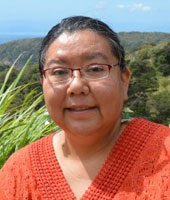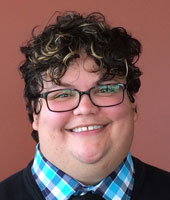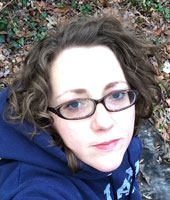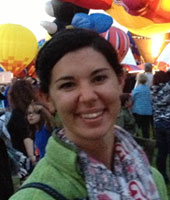2015 Bilinski Foundation Fellowship Recipients
Melvatha Chee

Melvatha is an advanced Ph.D. candidate in linguistics. Her research interests are in the areas of morphophonology, semantics, polysynthesis, and the child acquisition of these linguistic categories as it relates to the Navajo language. Her dissertation research project aims to analyze the acquisition of the Navajo verb. Melvatha has been collecting corpus data from children ages thirteen months through ten years. Her dissertation research represents a Native speaker's contribution to the understanding of language development in a morphologically rich language. Melvatha hopes that upon completion of her research, her findings will provide an insight and a re-examination of pedagogical approaches in the acquisition of an indigenous and polysynthetic language. Melvatha's clans are Tsé Nahabiłnii, Kin Łichíi'nii, Hooghan Łání and Áshįįhí. She is from Lake Valley, New Mexico. Melvatha maintains a connection to her culture in order to enrich her Navajo language skills and knowledge.
Rachel Levitt

Rachel Levitt is an advanced PhD Candidate in the American Studies department as well as a Women Studies graduate certificate holder. Their* dissertation investigates the bullied subject and the racial and colonial dynamics that inform its construction and circulation. While law, the promise of freedom, multiculturalism, and other forms of liberal belonging have been robustly theorized as violent formations, Rachel argues the bullied subject—as subject, object, and addressee of racially normative and colonial normative discourses—operates to alibi, rather than challenge, normative violences. However, by attending to the logics and norms that underwrite the production of the bullied subject in both law and scholarship, Rachel hopes their work will add to the chorus of activists and scholars trying to make queer lives more livable. *Rachel doesn't identify as male or female, thus uses"they", "them," and"their" as gender neutral singular pronouns.
Carson E. Morris

Carson E. Morris is a PhD candidate in the History Department, specializing in Latin America and Comparative Gender and Sexuality. She holds an MA in Latin American Studies from UNM and a BA in Spanish from Wake Forest University. After a spending a year researching in Santiago, Chile, she is currently writing her dissertation, "Everything is Drag: The Politics of Performing Beautiful Women in Cold War Chile." Her work examines the construction, regulation, and performance of female bodies, genders, and sexualities under changing Cold War political regimes. She has taught Spanish for over nine years at the high school and university levels and has worked as a bilingual Project Assistant for UNM's Education Department.'
Corrine Occhino-Kehoe

Corrine Occhino-Kehoe is a PhD candidate in the Department of Linguistics. Her research explores how domain general cognitive processes and language usage influence the form and structure of spoken and signed languages. Her dissertation investigates iconicity in signed languages, suggesting that the visual modality creates an ideal medium for signers to capitalize on visual properties of the world. And while iconicity occurs in spoken languages, signers take advantage of the visual modality to leverage iconicity to a much greater degree than spoken languages users are able. Primarily, she suggests that iconicity is a natural and necessary part of human language, on par with arbitrariness and that without the serious consideration of signed languages, the degree to which iconicity plays a role in human communication will continue to be overlooked.
Stephanie Spong

Stephanie Spong is a Ph.D. candidate in the Department of English. Her dissertation examines twentieth-century love poetry and elucidates how a once sentimental genre has survived and thrived in experimental forms. Her project begins with a series of case studies to establish love poetry in its modernist form and then casts forward to illustrate how mid-century and contemporary poets have continued to find new ways of re-imagining the genre. Her project recovers the love poem as a tool for resistance to social and aesthetic pressures that could have easily muffled the genre in twentieth-century experimental poetry, as well as in broader public conversations about love, sex, and eros.
